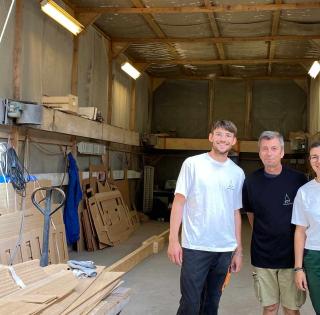
What is the project behind your start-up?
Ghattas Akkad: Our start-up aims at designing a CubeSat prototype development kit formed of a 3D printed 10x10x10cm CubeSat skeleton and 4 custom-designed printed circuit boards (power, communication, controller, sensing).
The kit offers numerous advantages: its "turnkey" design greatly reduces the testing and prototyping phase by removing the multidisciplinary barrier. The low-cost modules makes it accessible for everyone. The kit provides an opportunity for everyone (researchers, engineers and hobbyist) to experiment with space applications regardless of their level of knowledge.
What is innovative is this project?
GA: For this design the innovative factors are as follows:
- Easy-to-use CubeSatellite research and development kit,
- Low cost
- Accessibility for everyone
- Up-to-date support material
- A ready prototype that meets the original standards
- A ground station software for data communication with the model
Why did you choose to integrate the ENSTARTUPS business incubator?
GA: I chose ENSTA Bretagne ENSTARTUPS business incubator for both personal and professional reasons. I have obtained my PhD degree in Electronics and Electrical Engineering, in 2020, from ENSTA Bretagne, under the supervision of Professor Mansour. Additionally, I completed 2 years of postgraduate work at ENSTA Bretagne as a research engineering. Moreover, as of 2022 I have received the position of research follow.
ENSTA Bretagne offers a high-quality professional environment. Firstly, it offers the possibility to interact with the pioneers in embedded systems and space applications. Secondly, it makes funding sources available. I would add that the robotics and electronics programs developed on campus offer access to industrially-used software.
What are your ambitions for this project?
GA: I wish to offer this complete kit, and provide an opportunity for everyone to develop space applications, specifically in countries with underfunded research centers, such as Lebanon, where I live.
Ghattas Akkad is currently an assistant professor in Lebanon working in the areas of embedded systems and machine learning. He is also a research fellow at ENSTA Bretagne, Brest, France.
Contact : ghattas.akkad(a)gmail.com















